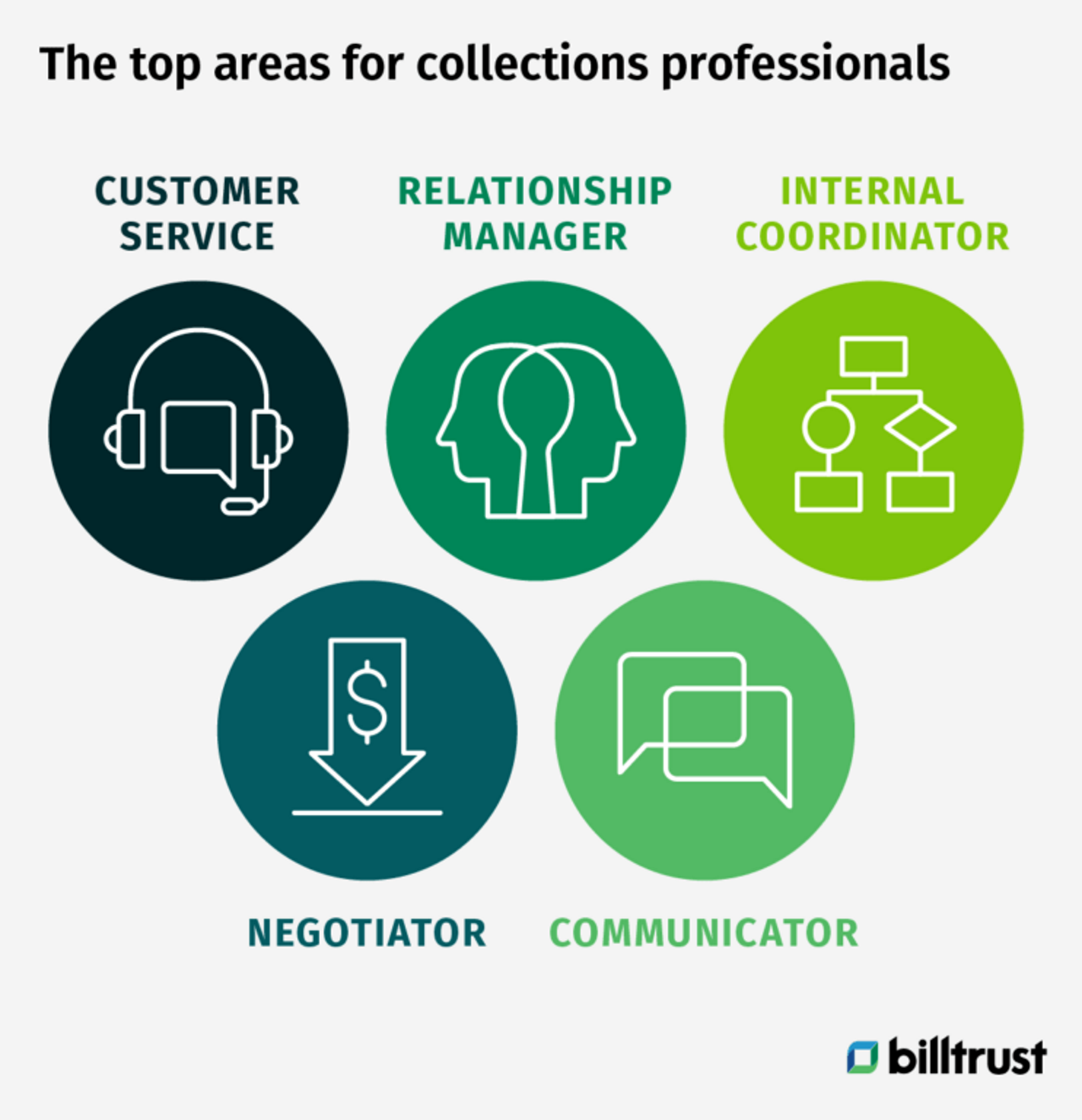What does the word "collector" mean to you?
Most accounts payable professionals realize that there is a huge difference between the actions and attitudes of business-to-business collections and to business-to-consumer collections. When consumers hear the word “collector,” images of pesky letters, phone calls at inconvenient times, aggressive and even hostile conversations may come to mind. Some of these misconceptions may carry over in B2B collections, but debt collectors have been trained in negotiation skills, so they know how to avoid insulting customers.

Every collector I know realizes they are not like that stereotype, and while their goal is ultimately to collect on account receivables as timely as possible, it isn’t a zero-sum game. The classic tough-nosed, uncompromising, get-paid-at-all-costs collector is passé.
Modern collection professionals realize they play a host of roles within their company and realize the importance of the customer relationship. The question is, how do you get both your internal and external customers to know you are there for both their benefit?
What do collection professionals do?
Before you can change anyone else’s attitude, you first have to change your own. Have you ever really thought of the different roles you play in your job? By knowing them and their importance to both your external and internal customers, the better you will be able to perform your role and the greater value you bring to your company. First and foremost as a collector, you collect money– it's right there in the name. But don’t sell yourself short. You do so much more.

Customer service
As a collector you are usually the last line of contact for the customer. Your AP contact knows that you have to make sure everything is right about the invoice and the product they received before they will pay for it. As such, you have to coordinate any issues and push for final resolution to get that invoice paid.
Negotiator
You also have to be a negotiator to be able to perform your job. Sometimes you have to decide on what you will accept from a customer versus what is open or what they want to pay. To keep orders shipping, you need to be able to find mutually beneficial solutions for both you and your customer. Many times in collections, negotiating isn’t just external either. You are trying to make your internal customers happy as well. Being able to handle both those customers and coming up with a solution to make everyone happy without hurting your company takes a strong negotiator.
Relationship Manager
When you think about it, whom within your organization communicates with your customers more often than you? Your sales team may frequently call on customers, but it’s likely to sell more business. Customer service may often interact with the customer, but many times clients will deal with multiple representatives. The nature of these interactions are much different than that of a collector, which at times can be contentious. Your customer experience scores (for example Net Promoter Score) may be heavily influenced by contacts with your collections team. Too many bad collections experiences or giving the wrong ultimatum can cost you a customer and impact revenue. Being a good collector means taking a customer-centric approach.
Communicator
I have always believed that collections isn’t a finance job, it’s a communication job. If you do not have good communication skills, you cannot be an effective collector, period. The importance of communication could be a white paper all its own, but put simply, ineffective communication leads to ineffective collections.
You need to be clear and firm in your communication and having gray areas can lead to you not getting the payment you expected. Miscommunication can lead to issues which can damage the customer relationship. Making sure you establish expectations and give clear takeaways is crucial.
Internal Coordinator
The external customer isn’t the only relationship you manage. You have to be skilled in managing the internal customer relationship. Common misconceptions within your company may be that debt collectors should be a last resort, or that sales teams should negotiate with customers before engaging collectors. Sometimes it can feel like you have different objectives than members of your own organization, but, in the end, you are all striving for your company’s success. By managing these internal relationships, you can better help both of you achieve your objectives and deliver a great customer experience.
There are a number of different roles that a collector plays, and I only touched on a few here. Realizing all you do should enable you to change your approach as a collector and how you view the role you play in your organization. Once you do that, you can start to change how others within the organization begin to view the collector role. Doing that builds credibility, which is an invaluable asset to have.
Continue the collections conversation
To learn more about how Professional Collections Training can impact your business, fill out the contact form and a Billtrust expert will be in touch with you soon.
About John
John Floyd is the Senior Business Consultant for Billtrust, supporting customers to implement collections solutions and optimize their environment to reduce DSO and delinquency. With 20+ years of experience in credit and collections, John has held the positions of Credit Analyst, Risk Compliance Analyst, Analyst - Order to Cash, Credit and Collections Supervisor, Credit Analyst and Collections. He has managed in-house and outsourced collections teams. In his career, John has created policies and procedures, as well as correspondences (I.E. dunning letters, final demand letters, credit applications, payments plans) for multiple companies.

